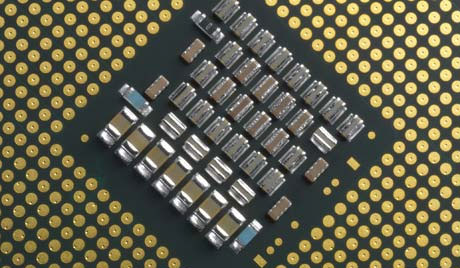Intel, FTC Come to Terms on a Settlement
The Federal Trade Commission can close the books on its case against Intel, the world's largest chip maker, after the two sides were able to hammer out a settlement. Intel stood accused of anticompetitive practices, which is legal speak for being a bully in the marketplace, and under terms of the agreement, the Santa Clara chip maker must refrain from offering "conditioning benefits" to manufacturers who agree to roll with Intel exclusively, or "retaliating against" manufacturers who don't.
"This case demonstrates that the FTC is willing to challenge anticompetitive conduct by even the most powerful companies in the fastest-moving industries," said Chairman Jon Leibowitz. "By accepting this settlement, we open the door to competition today and address Intel’s anticompetitive conduct in a way that may not have been available in a final judgment years from now. Everyone, including Intel, gets a greater degree of certainty about the rules of the road going forward, which allows all the companies in this dynamic industry to move ahead and build better, more innovative products."

For Intel's part, the chip maker has agreed to follow the rules outlined in the settlement, while at the same time "is not admitting to any violation of the law nor does it agree with the allegations contained in the complaint." Intel also gets off without having to pay any fines, so the whole thing amounts to a verbal warning, at least as far as the FTC is concerned. Back in November 2009, Intel cut a check to AMD for $1.25 billion to settle similar charges.
To avoid facing future trouble with the FTC, Intel agreed to do the following:

The FTC approved the settlement in a unanimous 4-0 vote, with Commissioner William E. Kovacic recused. The order will be subject to public comment for 30 days, after which time it will become final, the FTC said.
"This case demonstrates that the FTC is willing to challenge anticompetitive conduct by even the most powerful companies in the fastest-moving industries," said Chairman Jon Leibowitz. "By accepting this settlement, we open the door to competition today and address Intel’s anticompetitive conduct in a way that may not have been available in a final judgment years from now. Everyone, including Intel, gets a greater degree of certainty about the rules of the road going forward, which allows all the companies in this dynamic industry to move ahead and build better, more innovative products."

For Intel's part, the chip maker has agreed to follow the rules outlined in the settlement, while at the same time "is not admitting to any violation of the law nor does it agree with the allegations contained in the complaint." Intel also gets off without having to pay any fines, so the whole thing amounts to a verbal warning, at least as far as the FTC is concerned. Back in November 2009, Intel cut a check to AMD for $1.25 billion to settle similar charges.
To avoid facing future trouble with the FTC, Intel agreed to do the following:
- modify its intellectual property agreements with AMD, Nvidia, and Via so that those companies have more freedom to consider mergers or joint ventures with other companies, without the threat of being sued by Intel for patent infringement;
- offer to extend Via’s x86 licensing agreement for five years beyond the current agreement, which expires in 2013;
- maintain a key interface, known as the PCI Express Bus, for at least six years in a way that will not limit the performance of graphics processing chips. These assurances will provide incentives to manufacturers of complementary, and potentially competitive, products to Intel’s CPUs to continue to innovate; and
- disclose to software developers that Intel computer compilers discriminate between Intel chips and non-Intel chips, and that they may not register all the features of non-Intel chips. Intel also will have to reimburse all software vendors who want to recompile their software using a non-Intel compiler.


